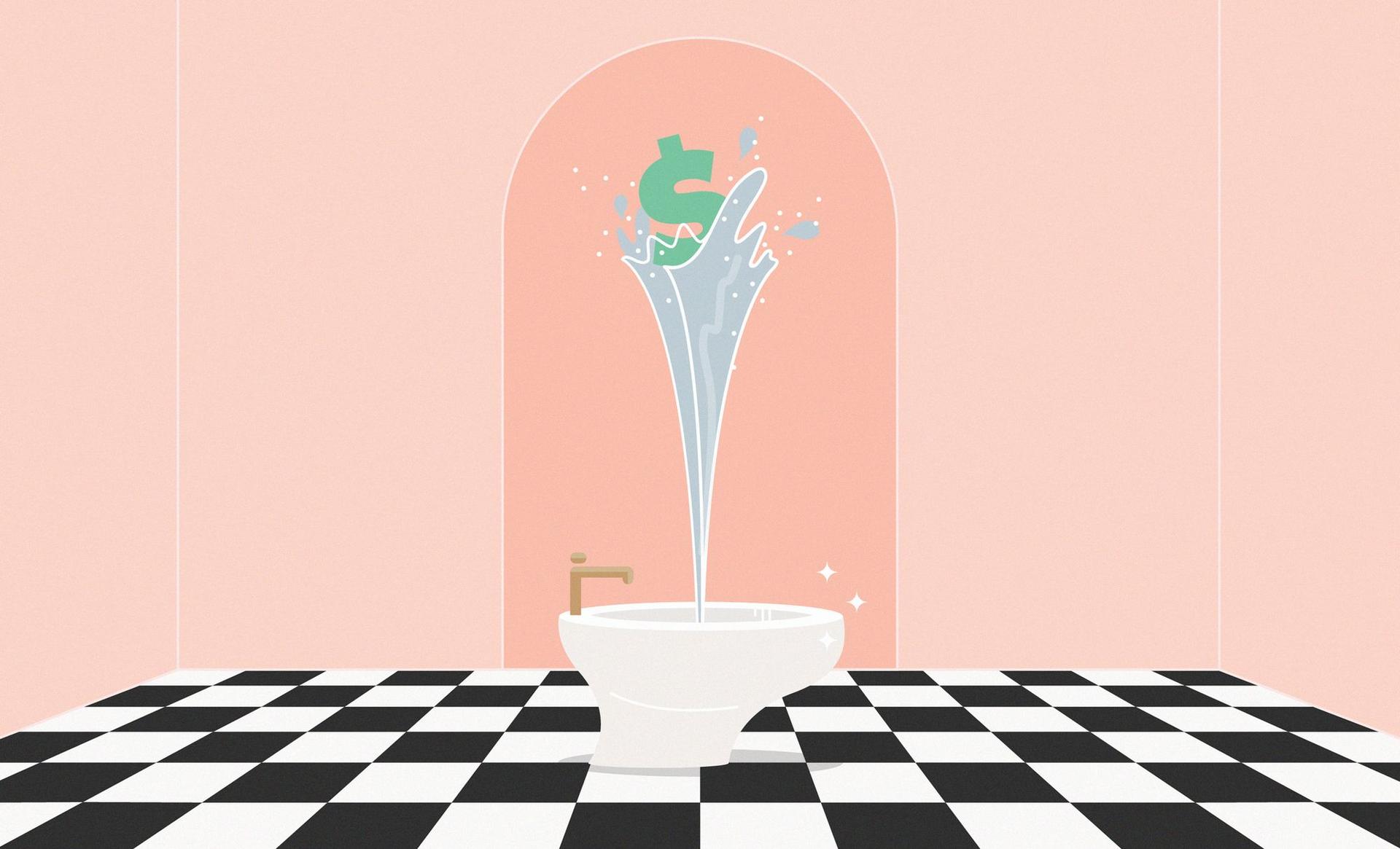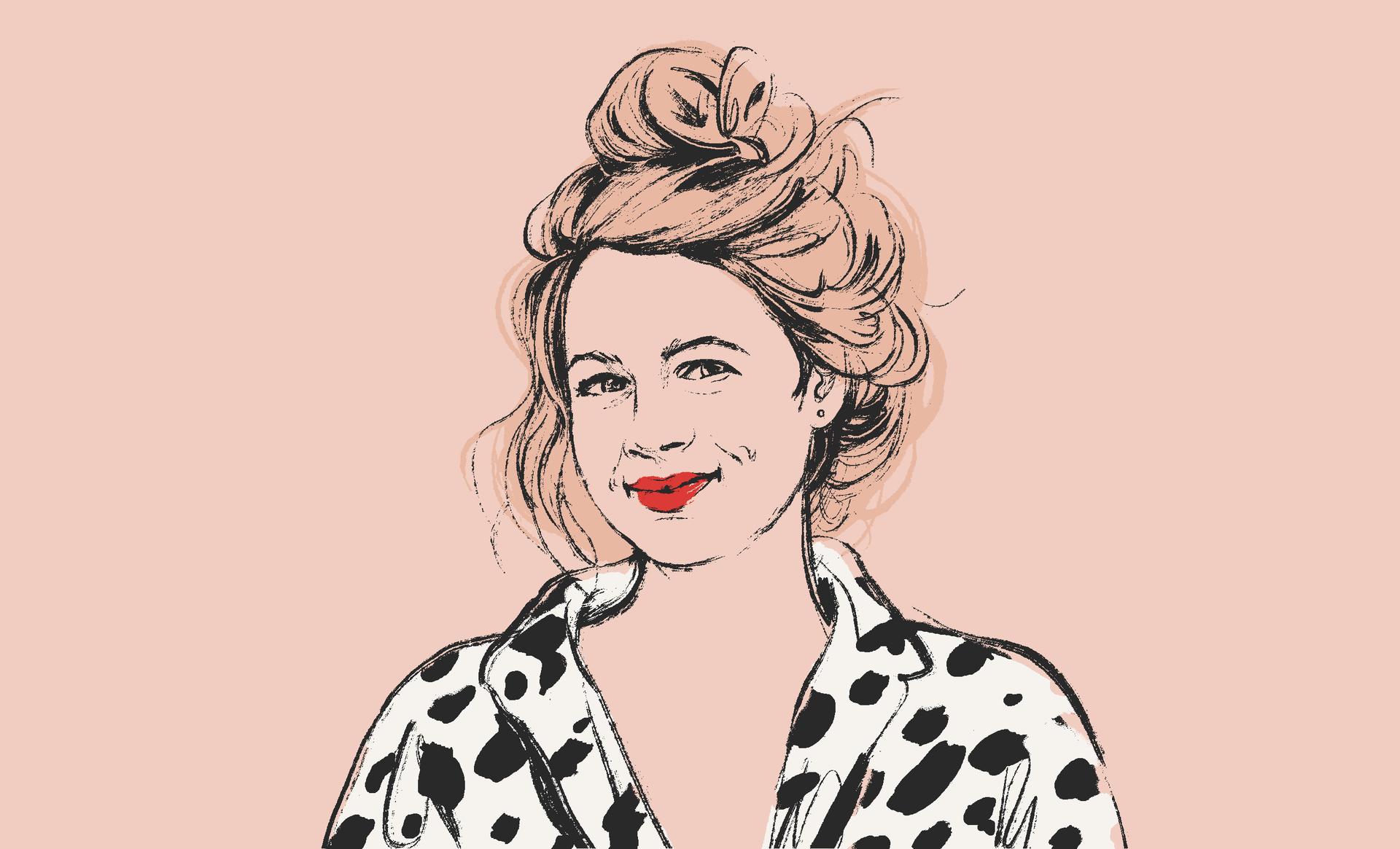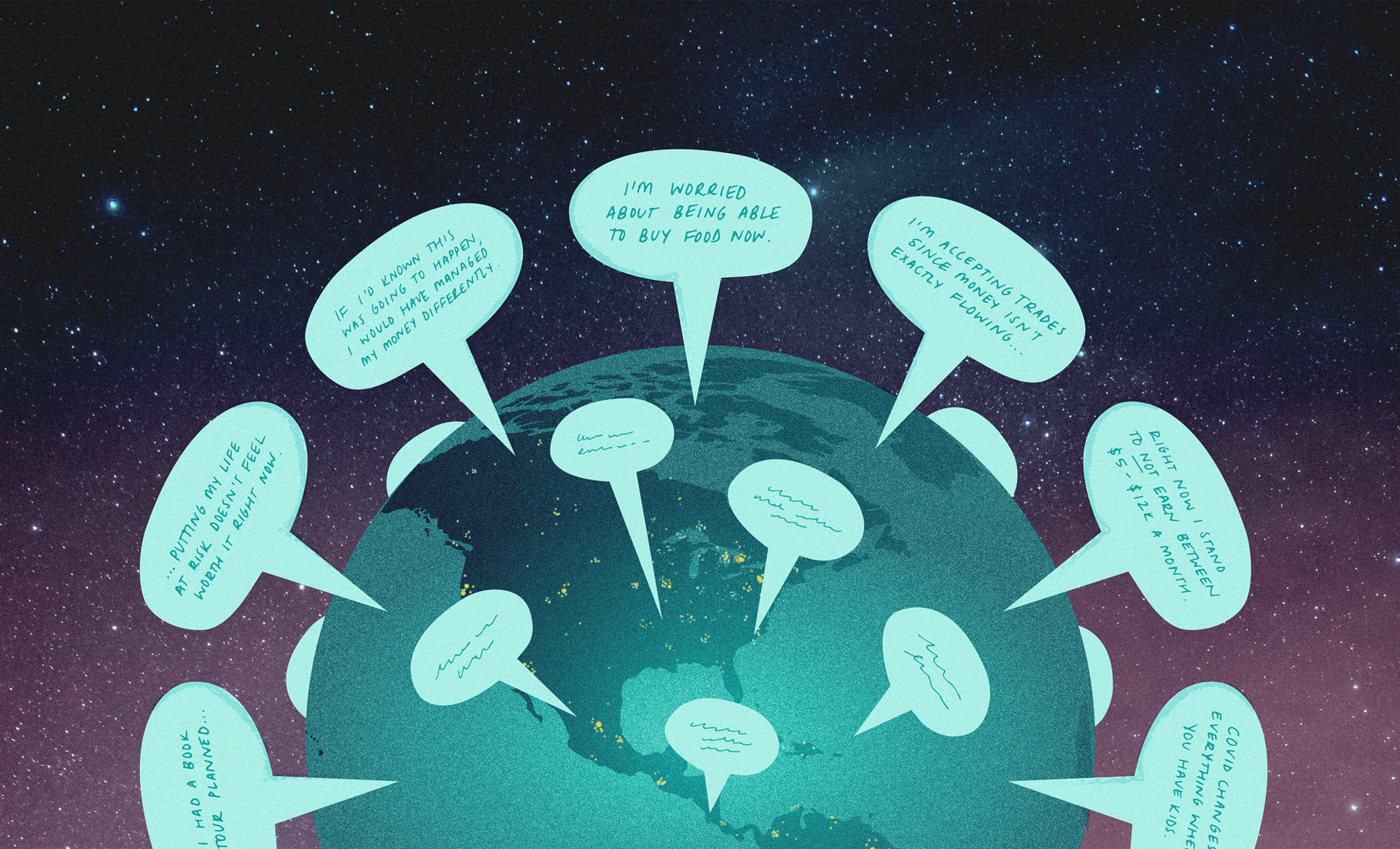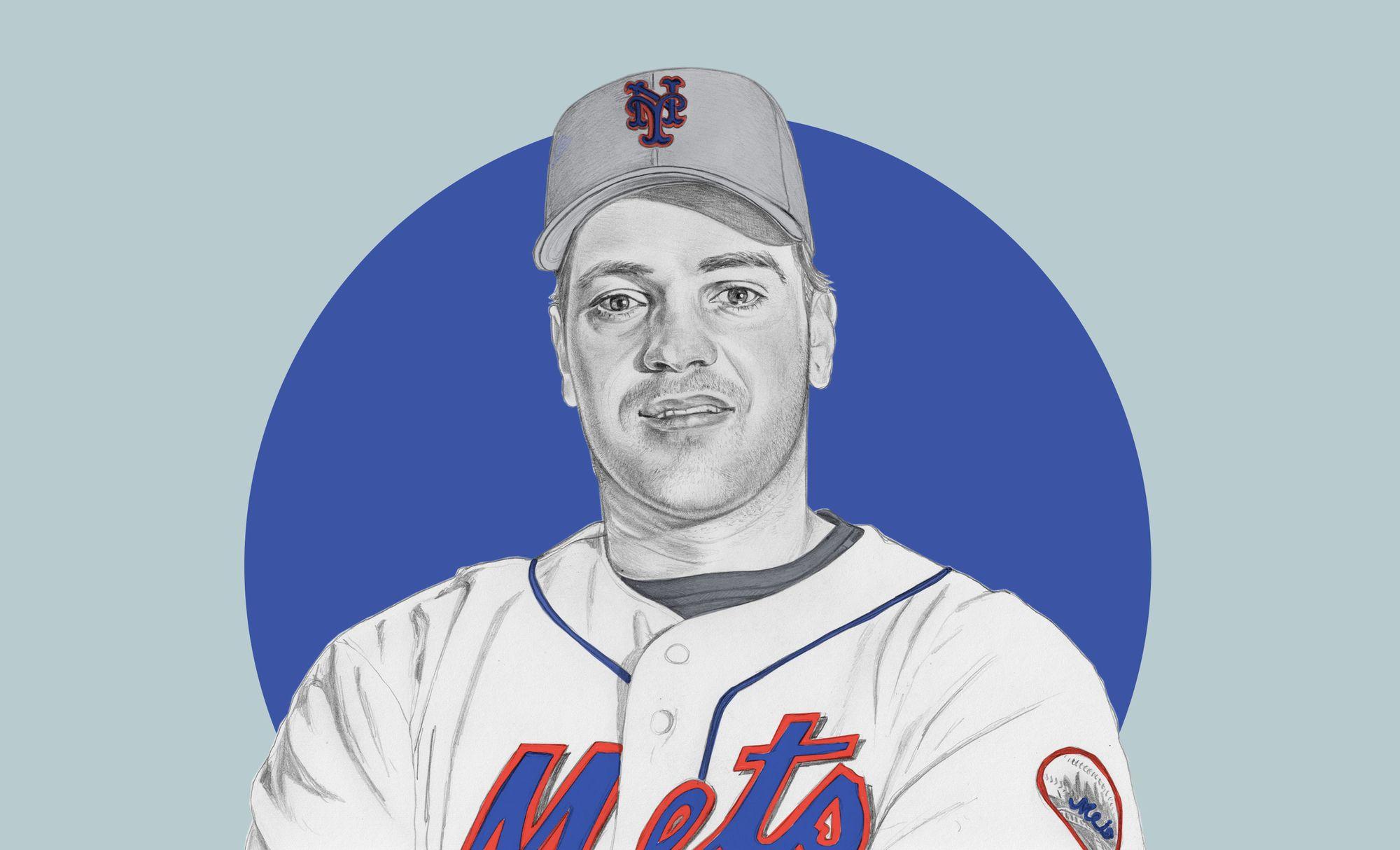
Money Diaries
Mike Piazza Was Successful Because You Booed Him
The legendary catcher talks about his dad, his kids and how he didn’t feel comfortable being an introvert until he moved to New York. And yes, his money story.
Wealthsimple makes powerful financial tools to help you grow and manage your money. Learn more
Wealthsimple is an investing service that uses technology to put your money to work like the world’s smartest investors. In “Money Diaries,” we feature interesting people telling their financial life stories in their own words.
There’s a little bit of a legend type thing about the fact that I was drafted in the 62nd round of the Major League draft. They don’t even have a 62nd round anymore. And, when a team drafts you, they don’t necessarily have to sign you. They can wait and see and keep your rights until the next draft. After I was drafted, I went out to Los Angeles, because the Dodgers wanted to at least watch me before they let me go back to school, and I did really well. I was hitting balls into the seats. There’d already been some talk about converting me into a catcher, so they had me throw and they saw that I had a really good arm. They were so impressed that the scouting director came down and made me an offer.
It was $15,000 to sign right there, and that’s when I ended up signing with the Dodgers. It was different back then. I didn’t have an agent. My first contract was $850 a month — single-A ball in Salem. It wasn't like you needed an agent to negotiate an $850 a month contract. And that was my salary when I started playing baseball.
My father was the original out-of-nowhere success story in my family. His parents were Italian immigrants who came to the United States in search of a better life. He grew up in poverty, in very difficult situations, and he told me stories. His stories were really graphic in a way that made me truly appreciate his success, like how he and his three siblings had to sleep in the same bed, how he would collect the milk bottles after lunch at school when the kids were done and then pour the remains into one bottle so he could have something to drink.
He dropped out of high school to get a job, then got drafted for the Korean War. But two weeks before he was going to be deployed to Korea, he had a really bad foot infection — he almost lost his foot — and had to go through basic training again. His new company was sent to West Germany for border patrol while his original company went to Korea and got hit pretty hard. A lot of those guys died. Germany at that time was no picnic, but it was safer than Korea. The fact that he almost lost his foot may have saved his life.
When he got discharged, the Army gave him $400 mustering-out pay and he started his life. His sister and her husband had a piece of property with a barn and some junk cars on it, and he just started fixing up the cars, put one of them on the front lawn with a FOR SALE sign, sold that car, started building up that business. Eventually lo and behold he became one of the first Datsun dealers in the United States. “You know, Datsun’s looking for new franchisees,” he told my mom after they were married. And my mom’s like, “Those cars are ugly — I don’t know why you would want that.” So of course he bought the Datsun franchise, and it turned out to be a pretty good success! Remember the 280Z? My dad said he couldn’t keep them on the lot. Then he bought a Honda franchise, and then he bought another one. When the gas crunch hit in the late 1970s, the Chryslers and Fords and the big gas guzzlers were no longer practical, those dealerships were going out of business, and my dad couldn’t keep Hondas and Datsuns on the lot.
Datsun is now Nissan, and today we own 22 stores around Philadelphia and New Jersey. You know, I hear a lot in business circles that you have to outwork everyone, and my dad always said that to me, too: you’ve got to outwork everyone. But there’s nothing wrong with a little luck, too.
Still, we grew up very conservative with money. Very middle class. When I was younger my mom drove a big Chrysler — a turquoise Chrysler with a black vinyl top—and my dad drove a Lincoln Mark 6. He would wear his leisure suits and his Sansabelt slacks and he would take me down to the Phillies games in his Mark 6. It’s a boat, and I think it was like peach coloured — a really crazy car — and it swam around on the road so much I remember being carsick a couple of times. It was a two-door car, so when my brother and I got sick, my dad would have to pull over, open up the door so we could get sick from the back seat.

Sign up for our weekly non-boring newsletter about money, markets, and more.
By providing your email, you are consenting to receive communications from Wealthsimple Media Inc. Visit our Privacy Policy for more info, or contact us at privacy@wealthsimple.com or 80 Spadina Ave., Toronto, ON.
**It's funny, people think after you sign a contract like that, you’d be eating steak and drinking wine and celebrating, or maybe going, “Hey, I'm rich. I never have to work again for the rest of my life!” I remember I barely slept that night, because I kept waking up in a cold sweat thinking, What the hell did I just do? I was terrified. **
It was only when I got into high school that it became clear my father was having business success. He started driving a Porsche. He got a Rolex. We would see these things, things gradually getting nicer, and we’d be like, “So Dad, you're doing pretty well, huh?!”
My dad worked really hard, and even though he would occasionally spoil himself or buy things, he had that old-school mentality that you always try to live close to the ground. Even if you're doing well, you always feel like you're one bad break away from going back to poverty and your kids facing the hardships that you had as a kid. I think that’s why he was such a workaholic. He was a great dad, pitched to me for hours. But that was on the weekends.
I was a good high school player out of Pennsylvania, so I had multiple scholarship offers my senior year, but they were mostly from smaller schools. Tommy Lasorda — who was my father’s very close friend — was friends with a coach at the University of Miami. So I went there on a partial scholarship. But when I got there, it was clear that I wasn’t ready for that level of baseball. I had played 17 games as a senior and some American Legion ball over the summer. I was going against kids from the southern belt playing 50 or 60 games.
I went to University of Miami for a year and then I went back to junior college. I played well, but about three weeks before the draft, I tore a ligament in my left hand. I was playing first base and this guy was running up the baseline and I went to tag him and I hit his knee and he tore my knuckles apart, and I had to have a cast on for three weeks. That’s when Tommy convinced the Dodgers to take me with a late-round pick.
When I started playing in the minors, I lived with four other guys in Salem, and we all pooled our money together and kind of lived like a family. We definitely had a few keggers — keg beer was cheaper! When we were on the road we got like $8 or $10 a day for meals, and I saw guys who would actually pocket that and make peanut butter and jelly sandwiches the whole time. I never want to be the guy who goes, “Back in my day we played with bare feet”… but we had to use a payphone! And if you needed to make a call in your place, you had to call the phone company to come out and set up a landline. And if guys were waiting for their girlfriends to call it was like, “Dude, I need the phone. Get off the phone!”
I was fortunate in that my dad would come visit me sometimes and he would slip me like 100 bucks. And that was such a windfall, you know? I would take the guys out. Let me tell you, we knew our restaurants. We were pretty adept at finding those deals. It definitely taught me to be, well, I don’t know if frugal is the right word, but we stretched our dollars. Obviously your Sizzler Steak would have the salad bar. The Olive Garden with the unlimited breadsticks. We always knew where to go, even in a small minor league town. Like there was this place — I forget where it was — where they had all-you-can-eat spaghetti and Bolognese for like $6.99, and we'd all go there and just crush all this spaghetti and Bolognese. Back then, we knew we wanted to eat well, but you never really worried about, like, gluten. Gluten was our diet! It was like, Give me a whole tub of gluten. That's what we ate.
Same thing with the advances in sports science and training techniques. We just went to the gym and did curls and bench press, and that was it. Now even the golfers are full-blown athletes. It’s funny — I’m a fan of Francesco Molinari, the golfer, and last year after he won he gave his speech and he was like, “I wanna thank my nutrition coach, my strength coach, my mental coach…” And then he goes in his Italian accent, “I have a lot of coaches.” And hey, God bless him! Obviously he’s been successful. But we were just bootstrapping it. And it was so much fun. I’ll be honest, as much as I enjoyed the success of the major leagues and making great money, that part of my career was the most fun because it was like us against the world.
Recommended for you

She Was Living in a Shelter Six Years Ago. Now She’s the CEO of Her Own Beauty Company
Money Diaries

How to Quit Your Job and Bike Around the World for $17,000
Money Diaries

Cult Animator Carson Mell Decided Making Stuff Was More Important than College
Money Diaries
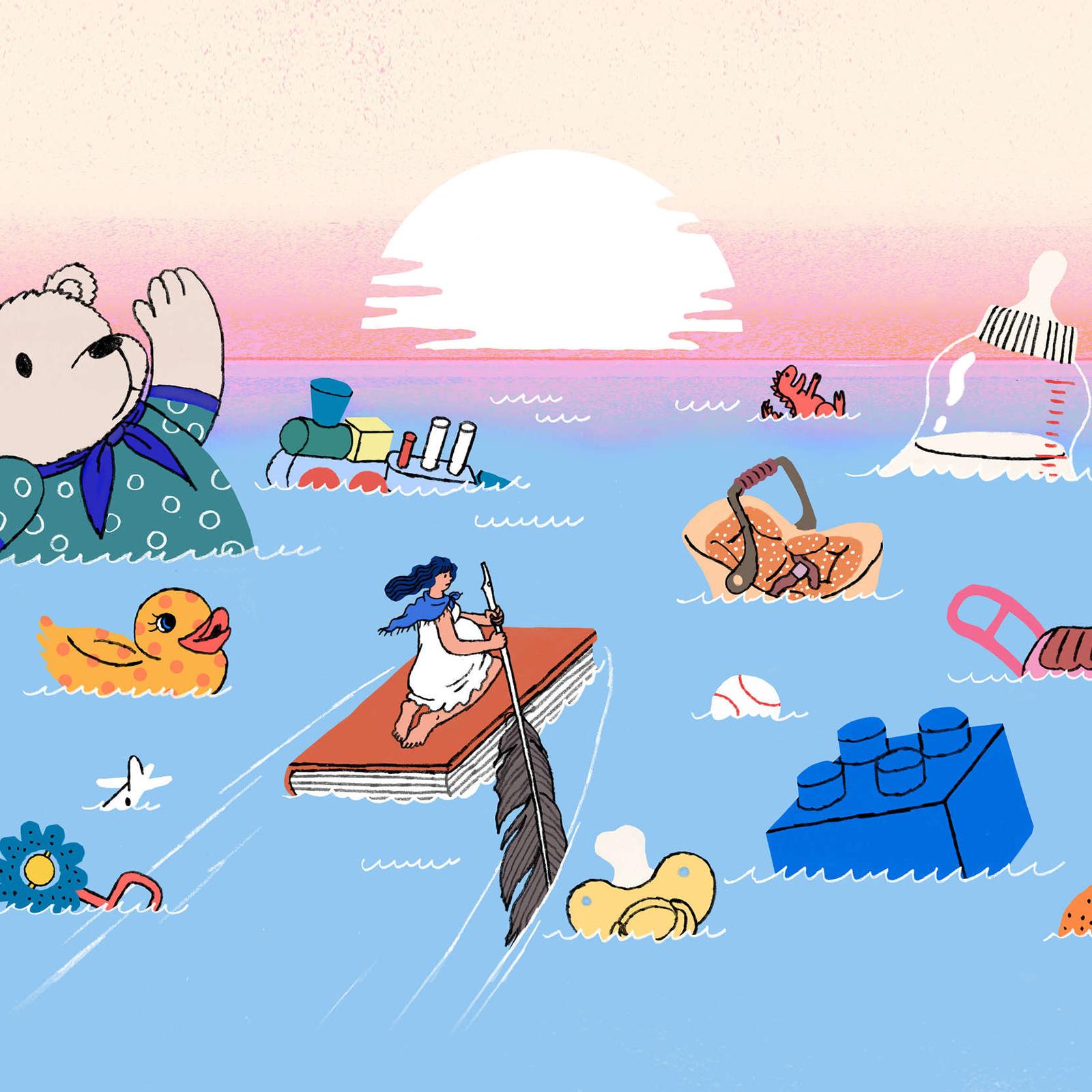
Karen Russell: A Brutally Honest Accounting of Writing, Money, and Motherhood
Money Diaries
The next year, I went to Vero Beach and I think they gave me a raise, up to $1,000 a month. Then I went to Bakersfield the year after that and made $1,100. While I was in Bakersfield, one of the teams we played against was in Reno, and whenever we played there, I would see a bunch of guys just burn their checks at the tables. And I’m going, “Dude, I’m sorry, but I work too hard for this money.” I mean, I would take a hundred bucks and play slots. But I never wanted to chase my money. Even today, if I go to Vegas, which is very rare, I’ll take out 500 bucks, maybe play some blackjack, maybe a little poker. But that’s it. You really have to be disciplined when you're in those environments, because you do have to invest in yourself. You have to take care of yourself.
That season in Bakersfield, I hit 29 home runs, and the next season I was put on the 40-man major league roster to start the year, and that’s when I got my first major-league contract. It was $15,000 for the year, non-negotiable. It wasn’t a ton of money, but at the time it seemed like a lot to me. Also the checks! I’ll never forget those checks: they were Dodger checks, and they were blue, and when I got my first one I just remember going wow, and then going to the bank and depositing it with the teller. See, I’m dating myself again.
That rookie season went really well — I won rookie of the year and as a result I had the honor of signing the first multi-year contract for a rookie in LA Dodgers history. But it came at a price. It was a rough negotiation and it’s one of the big reasons I eventually left Los Angeles. After Frank Thomas won the rookie of the year with the White Sox a few years before me, he got a multi-year contract, so after I won rookie of the year in 1994, my agent and I used his deal as a template. We went to the Dodgers and said we want the same contract as Frank Thomas. But there was a lot of pushback. I actually walked out of a negotiating meeting at one point. They had just signed Chan Ho Park from Korea, who ended up being a very good major league pitcher for many years, and they gave him something like a $1 million bonus. And they're telling me I win rookie of the year — in the major league — and they want to renew me at like $350,000? I was like, “Are you serious?”
That negotiation process is what got me to the Mets. It was really contentious, and the relationship never really recovered — they traded me right before I became a free agent. I knew I had some leverage on the Mets going into free agency, because they had traded four guys for me, including some really good prospects. But I just believed that I was in New York for a reason, and I do believe there's a spiritual component to this as well. I believe it has to feel right. And coming from Los Angeles, and then going to the Mets, I was thinking, no offence to these other teams, but I wanted to do it in New York. I wanted to have that pressure and I wanted to perform on that stage. I felt like if I’d been there briefly, struggled and then signed somewhere else, my career would’ve been looked at differently. I wouldn’t have been looked at the same. Also it was a very generous contract — the biggest in major league history at the time.
It's funny, people think after you sign a contract like that, you’d be eating steak and drinking wine and celebrating, or maybe going, “Hey, I'm rich. I never have to work again for the rest of my life!” I remember I barely slept that night, because I kept waking up in a cold sweat thinking, What the hell did I just do? I was terrified.
I saw an interview once with John McEnroe, and he said something that really burned itself in my mind. He said like, “Elite athletes always have to find ways to remotivate themselves, because as humans, we always work better when there's a carrot dangling in front of us.” And if that carrot is money, once you get it and that incentive disappears, the energy shifts. If money is what motivates you, great, but for me it was always fear. Fear of embarrassment, fear of looking bad. I used the pressure of New York to motivate me. I didn't like to get booed, but when I did get booed it was a motivator for me. I went into my shell and I just found a way to dig down deep and get back to basics and start producing again. I played out of fear.
The booing started almost as soon as I got to New York. I was getting a few hits, I was hitting well on average, but I wasn't driving in any big runs. Then we were playing Tampa, like two outs in the seventh and a couple of guys on. The crowd was cheering, the music was playing… and I grounded into a double play. And I started getting booed. And let me tell you something, I didn’t like it. I did not like it, man. It was the cauldron. But that’s what got me to a higher level.
Playing in Los Angeles, I was never criticized, not by the fans. I was always this golden boy. And then I came to New York and I started struggling a little bit and the expectations were high and I started getting booed. It doesn’t happen the same way any more, everything now is super super sensitive. Me — I got booed. But I really credit it for pushing me to the Hall of Fame. I said it in my induction speech.
When I was coming up in Los Angeles, I was under this impression that you had to go out and be a celebrity — you had to go to the coolest parties and do the biggest events. You had to be that guy. I was always somewhat socially awkward. I ascended very quickly through the minor leagues, and when I got to the big leagues, I was still immature. After I signed my deal with the Mets in New York City, though, there was a kind of personal shift where I realized I didn’t necessarily want to be that guy, that rock star type. I’m not saying I was against going out and having a good time. But I think once I got to New York, and had the overwhelming pressure of that — I never wanted to be that guy who was struggling at the plate and then I was out at night and people were saying, “Oh, he's at this club, or he's at that club...” I wanted to maintain a certain professionalism and responsibility to be on the field.
Toward the end of my career, once I’d gotten married and was thinking about where to settle down and raise a family, a friend of mine said to me that most people our age live wherever their job is. But then he said, “You have all the resources in the world, you have all the money you need — where are you going to live?” I actually found that decision rather perplexing. But then I always enjoyed living in Florida. A lot of ball players live in Arizona and Florida — it's just easier weather-wise. The northern climate gets tough as you get older, and I was done with wrapping a bat with pipe insulation so it wouldn't sting my hands. Let me get to some palm trees and hit the golf ball around a little bit and maybe get out on the boat.
Even when I was playing in Los Angeles, I had a house on Boynton Beach — I bought it off my dad actually. It was my base for my first two years in LA, because I didn’t know if I was going to stay there or get sent back to minors or traded. The reason we moved here to Miami, the reason we have the house I’m in right now, really had nothing to do with me. Once I got to the Mets, we played in Miami a lot, and I loved going to the restaurants there — I’m a big foodie. I was going to South Beach so often, I thought, I might as well just buy an apartment there. So I bought this really nice apartment and I furnished it nicely, bought all this stuff. And as soon as I finished my quote-unquote “bachelor pad,” I got married. Typical, right?
We had our first child while we were living in New York, but it was during one of my last seasons and I was playing in Oakland, so I was all the way across the country. My wife is a California girl, but she was cooped up in this apartment in Manhattan, and it’s cold and it’s snowing, and she’s alone with the baby and she calls me and she’s like, “I’m going crazy.” So I told her to get on a plane and go to my apartment in Miami, and she loved it. And then we had our second child, and so then of course she wanted a house. Next thing I know, we’ve been in this house since 2008.
Now, though, we live full time with our kids in Italy, in the north near Milan. I did a project over there with a football club for a couple years, and it didn’t work out, but meanwhile our family was having this wonderful experience. The club was in Reggio Emilia, and we found this amazing school for our kids in Parma. They’re going into their third year now. They love it. They speak Italian. They have really great friends. And look, at this point in our lives, we’re living for our kids. And frankly, we wanted a change, too. We’re a short plane ride away from Spain or Greece or London, and we love giving our kids that experience.
It’s also a lot cheaper. I take my kids to church on Sunday and then afterward we go out for lunch and of course we get pizza, pasta, wine, four appetizers, seafood, whatever, and it’s like a hundred bucks, tops. In South Beach, it would be like three times as much. And of course, the pizza is from Naples, the seafood is right from the sea. It has its challenges. Italy is obviously known for its difficulty on the bureaucratic side, but you become used to it. We’re building a life there.
In fact, we’re selling this house in Miami. I love having it, but just this week the air conditioning guy, the roofer, the pool guy, and the landscaper were all here. This needs to be fixed, that needs to be fixed. And meanwhile we’re living abroad. I take care of things very well. I’m a fanatic when it comes to how things look. I’m very obsessive compulsive on that front. And to have a home that’s big like this — close to 10,000 square feet — it’s just a lot to take care of. We want to downsize our lives. So it’s on the market now. It’s listed through Caldwell Banker, if you know anybody who’s interested.
As told to Devin Gordon exclusively for Wealthsimple; transcript edited and condensed for clarity. Illustration by Jenny Mörtsell.
Wealthsimple's education team is made up of writers and financial experts dedicated to making the world of finance easy to understand and not-at-all boring to read.

